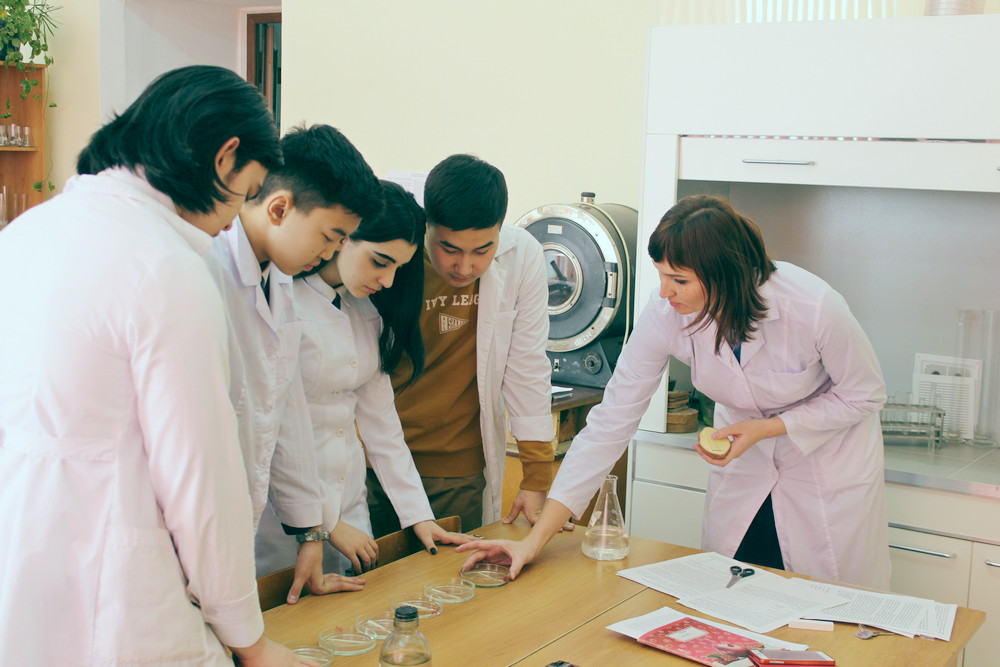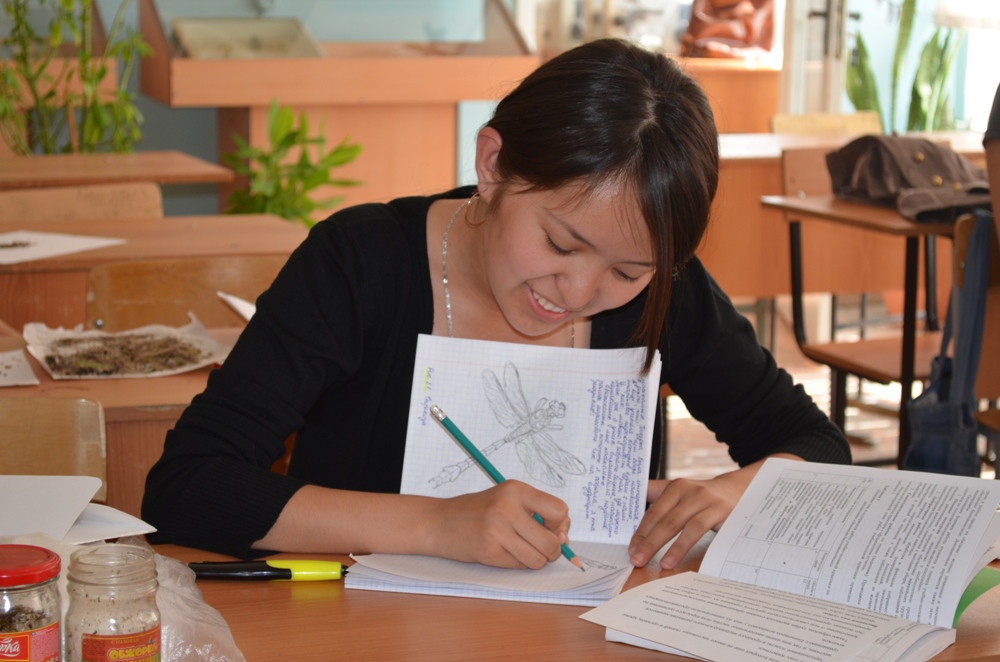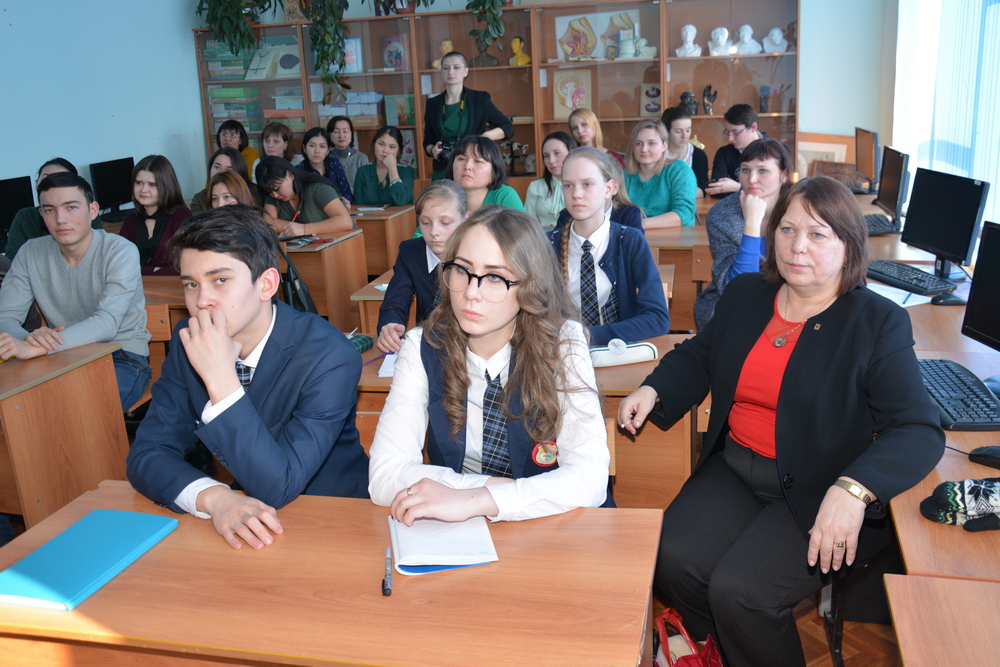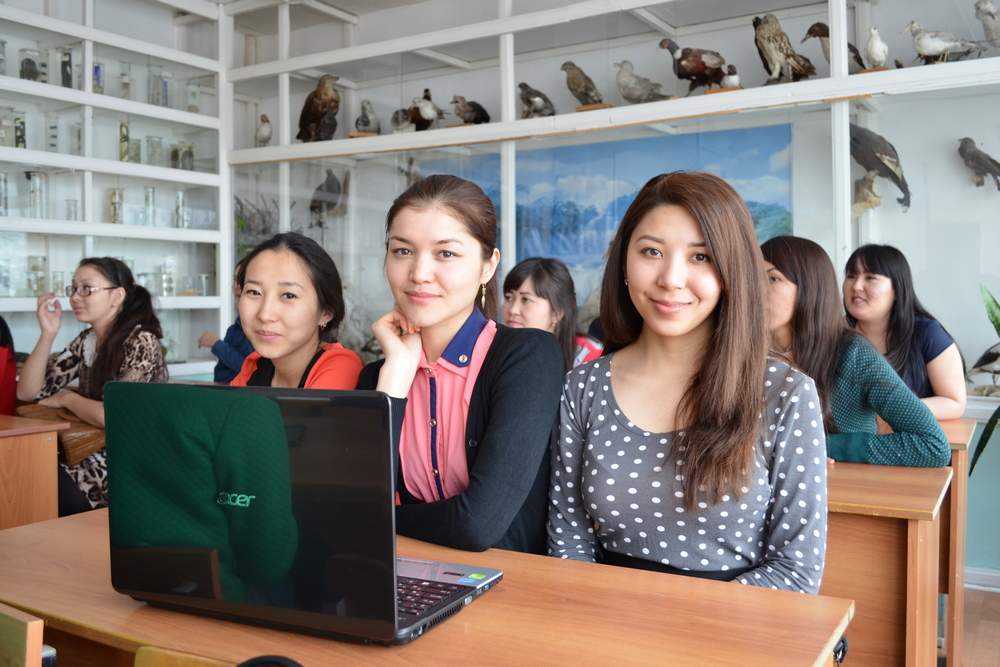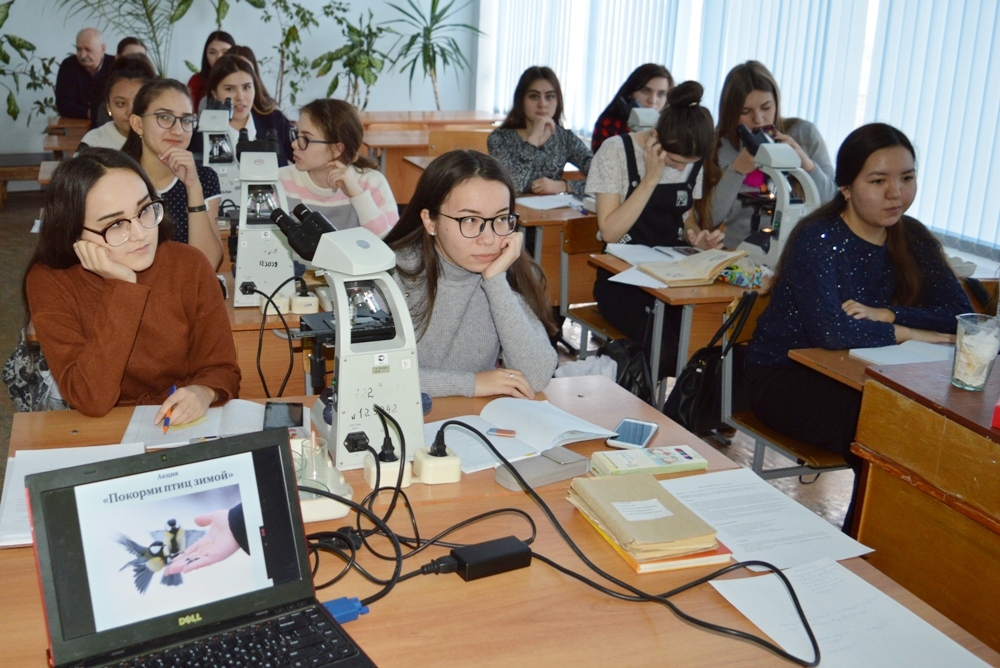| Number of cabinet | 720 |
| Area | 49,6 sq.m |
| Date of organization of cabinet | 2004 year |
It is intended for carrying out laboratory works on plant physiology, as well as setting up experimental and research works of students at the summer training practice, and final qualifying works. In this laboratory, students conduct a series of works on the study of plant cells, water exchange of plants, mineral nutrition, photosynthesis, plant respiration, and determination of their resistance to adverse environmental conditions.
| Number of cabinet | 701 |
| Area | 51,6 sq.m |
| Date of organization of cabinet | 2004 year |
The laboratory is designed to study human anatomy and physiology, the structure of organs, the body as a whole, and the processes of life of the body. Laboratory work on human anatomy and physiology is also carried out, as well as experimental research works by students. The laboratory is equipped with anatomical models of human organs and systems.
| Number of cabinet | 714 |
| Area | 50,1 sq.m |
| Date of organization of cabinet | 2004 year |
The classroom is intended for lectures and practical classes on subjects-methods of teaching geography, cartography with the basics of topography.When conducting practical classes, students use the equipment of The geography office, hemorphological, geological models, as well as geodetic devices - theodolite, nevelir.
| Number of cabinet | 725 |
| Area | 67,5 sq.m |
| Date of organization of cabinet | 1980 year |
The training room-laboratory of invertebrate Zoology is used for conducting classroom, laboratory and seminar classes in natural cycle disciplines – invertebrate Zoology, Soil Zoology, Introduction to entomology, and is also used for training and processing materials during training field practices, protection of course and independent work, etc. the Laboratory has a preparation room with a fume hood, racks for storing educational and scientific collections. Classes are conducted using modern laboratory equipment (binocular microscopes, equipment for ITK), collection materials on regional fauna, expositions, photo and video materials, posters and diagrams.
Лаборатория имеет препараторское помещение с вытяжным шкафом, стеллажами для хранения учебных и научных коллекций. Занятия проводятся с использованием современного лабораторного оборудования (бинокулярные микроскопы, оборудование для ИТК), коллекционных материалов по региональной фауне, экспозиций, фото- и видеоматериалов, плакатов и схем.
| Number of cabinet | 718 |
| Area | 50,6 sq.m |
| Date of organization of cabinet | 2004 year |
In the classroom, training sessions are held in the following disciplines: applied biology, methods of teaching biology. During the seminar sessions, students develop lessons on the updated content of the educational process with the use of computer technologies in the biology lesson. The study has the necessary didactic material of varying degrees of complexity for differentiated training in the study subjects.
| Number of cabinet | 705 |
| Area | 49,1 sq.m |
| Date of organization of cabinet | 1980 year |
The vertebrate Zoology laboratory is designed for conducting laboratory classes on vertebrate Zoology, ecology and basic life safety, evolutionary teaching, protected and disturbed areas, monitoring and restoration of the natural environment. In addition, there is a cameral processing of material collected during field practices. The audience has visual AIDS presented with wet preparations, stuffed animals, and an osteological set on vertebrate Zoology.
| Number of cabinet | 814 |
| Area | 67,4 sq.m |
| Date of organization of cabinet | 2004 year |
The learning laboratory is intended for conducting laboratory and practical classes in the disciplines of Geology and General earth science. Students in practical and laboratory classes use models of geological processes, mineral collection material, collections of minerals, layouts.
| Number of cabinet | 724 |
| Area | 49,9 sq.m |
| Date of organization of cabinet | 2004 year |
The laboratory is designed to study the anatomy and morphology of plants, systematics of lower and higher plants. The laboratory conducts training sessions in the disciplines of the Botanical cycle, and scientific research. Here, students dry and process the herbarium, identify plants collected on field trips during field practice and as a result of individual research projects.




